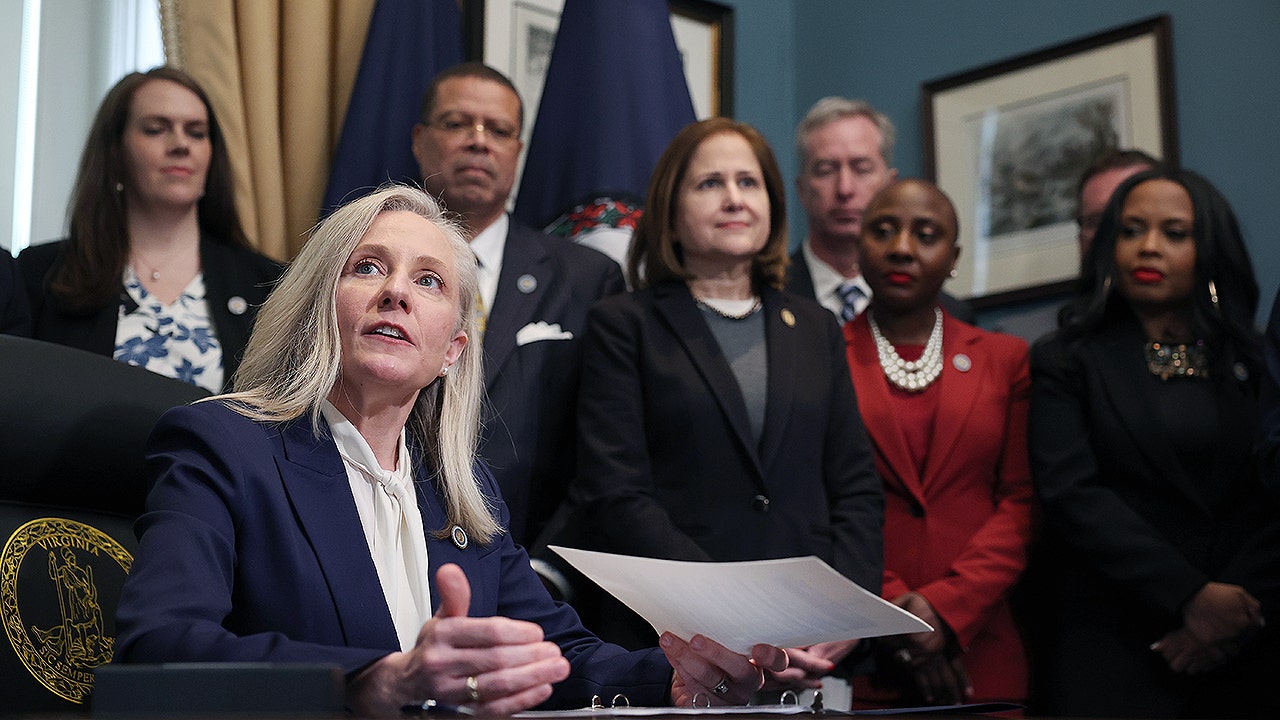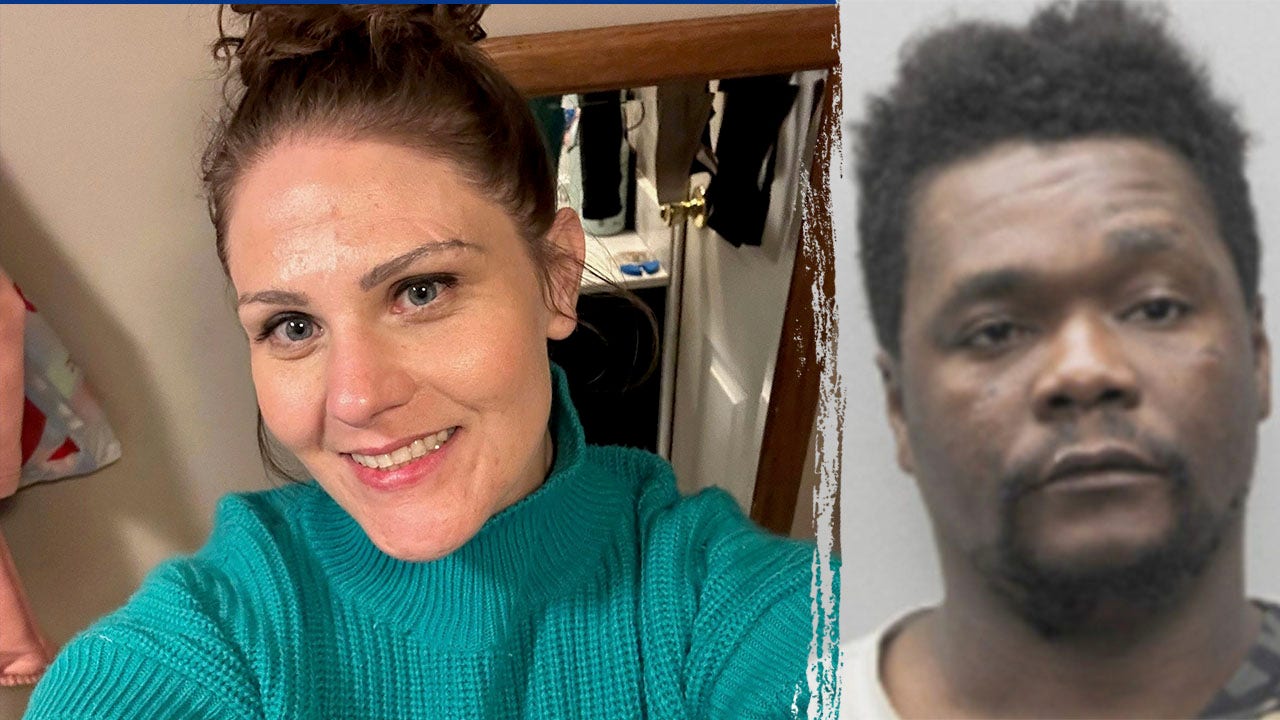Southeast
Supreme Court dismisses state challenges to red state restrictions on social media platforms

The Supreme Court on Monday dismissed challenges to Florida and Texas laws that restrict how large social media companies moderate user content.
Each law would require Big Tech companies like X (formerly Twitter) and Facebook to host third-party communications but prevent those businesses from blocking or removing users’ posts based on political viewpoints.
In a unanimous ruling, the court said lower courts did not properly analyze the First Amendment issues at play in the case. As a result, each case will go back to its respective Circuit Court of Appeals.
“Today, we vacate both decisions for reasons separate from the First Amendment merits, because neither Court of Appeals properly considered the facial nature of NetChoice’s challenge. The courts mainly addressed what the parties had focused on. And the parties mainly argued these cases as if the laws applied only to the curated feeds offered by the largest and most paradigmatic social-media platforms—as if, say, each case presented an as-applied challenge brought by Facebook protesting its loss of control over the content of its News Feed,” the court wrote.
GOP SENATOR URGES SCOTUS TO REIN IN BIG TECH’S CONTENT CENSORSHIP THAT DEFIES ‘LOGIC’
Sprinklers water the lawn in front of the U.S. Supreme Court on April 29, 2024. (Getty Images )
“But argument in this Court revealed that the laws might apply to, and differently affect, other kinds of websites and apps. In a facial challenge, that could well matter, even when the challenge is brought under the First Amendment,” the court added.
There were no dissenting opinions; five justices filed separate concurring or concurring in judgment opinions as well. They included Justices Amy Coney Barrett, Ketanji Brown Jackson, Samuel Alito, Neil Gorsuch, Brett Kavanaugh and Clarence Thomas.
In almost four hours of oral arguments in February, the justices weighed whether to offer a sweeping ruling on the First Amendment implications of the state laws, or a more limited approach that might have the lower courts take another look at how those content moderation policies would be applied.
The Florida law blocked a social media platform from engaging in censoring, prioritizing, or so-called “shadow banning” that is “based on the content.” Texas’ law was broader.
JAN 6 RIOTERS, ABORTION, GUN RIGHTS: A LOOK AHEAD AT LANDMARK CASES SCOTUS WILL HEAR IN 2024
Florida’s social media law blocked a social media platform from engaging in censoring, prioritizing, or so-called “shadow banning” “based on the content.” (Matt Cardy/Getty Images)
It would have also prevented “willfully deplatforming a candidate” for public office for material posted by or about that candidate.
Both Florida and Texas would also require those companies to notify a user when their content has been modified or edited, along with an explanation for that action.
GOP AGS ASK SUPREME COURT TO PEEL BACK CONTENT MODERATION FROM BIG TECH IN LANDMARK FIRST AMENDMENT CASES
Members of the Supreme Court, from left, Justices Amy Coney Barrett, Neil M. Gorsuch, Sonia Sotomayor, and Clarence Thomas, Chief Justice John G. Roberts, Jr., and Justices Ketanji Brown Jackson, Samuel A. Alito, Jr., Elena Kagan, and Brett M. Kavanaugh on Sept. 30, 2022, in Washington, D.C. (Collection of the Supreme Court of the United States via Getty Images)
Trade groups representing big tech companies argue that the laws violate their free speech rights to decide what content meets their policies — saying their forums should not be an open-ended portal for offensive or dangerous speech — including school bullying, harassment, terrorist ideology, racial hatred, medical misinformation and voter fraud.
The laws were supported by Republicans in Congress and over a dozen GOP-led states, who filed amicus briefs in the case.
Sen. Josh Hawley, R-Mo., said the platforms wanted to keep liability protections granted by Congress for content on their sites, while simultaneously asking for unfettered ability to censor content, citing their First Amendment liberties.
“Despite decades arguing for this position, today the tech platforms take precisely the opposite line. They claim that their content hosting and curation decisions are in fact expressive — expressive enough that they enjoy First Amendment protection,” the lawmaker argued.
READ THE FULL SUPREME COURT OPINION BELOW. APP USERS CLICK HERE
Read the full article from Here

Southeast
Virginia Democrats talk affordability — and vote to nearly triple their own pay

NEWYou can now listen to Fox News articles!
The Virginia State Senate and its Democratic majority may have voted to nearly triple their pay if a provision inserted into their final budget survives the House reconciliation process and reaches Gov. Abigail Spanberger’s desk.
The development comes as Spanberger has centered her campaign on “affordability,” with Richmond Democrats echoing that they are working to improve their constituents’ personal finances.
Virginia’s legislature itself was founded as a part-time, gentleman’s chamber, where lawmakers would return to their day jobs when Richmond wasn’t holding session.
Virginia Gov. Abigail Spanberger signs executive orders. (Win McNamee/Getty Images)
Proponents of raising the current 1988-established salary of $18,000 for senators and $17,640 for delegates say the structure restricts who can afford to serve as a lawmaker today. Lawmakers also qualify for a $237 per diem, mileage reimbursements, and coverage of office, meeting and other expenses.
Senators’ new salary would be $50,000.
Republicans were quick to criticize the final budget, with the Virginia Senate Minority Caucus saying in a statement that “teachers got a 3% raise, but Democrats give themselves 300%.” The actual increase would be closer to 178%, though one could say the new salary would be 300% of the original.
“The affordability hoax just gets worse and worse,” the caucus said, adding that the chamber’s majority killed a repeal of the car tax — something GOP gubernatorial nominee Winsome Sears ran on — while increasing the state budget by $1 billion overall.
Sen. Mark Obenshain, R-Rockingham, told WVTF it is the “wrong time” to address lawmaker pay.
NEW DEM STAR’S QUICK HARD-LEFT TURN AFTER ‘MODERATE’ CAMPAIGN WON HER COVETED RESPONSE TO TRUMP: LAWMAKER
“It’s supposed to be affordability for working families across Virginia, not members of the General Assembly,” he said.
Virginia’s legislature — the oldest continuous legislative body in the New World — has been making laws since its inception as the House of Burgesses in Colonial Williamsburg, where Spanberger gave the Democratic Party’s State of the Union response.
In her speech, she claimed President Donald Trump is the one “enriching himself, his family and his friends” and said Republicans are the ones “making your life more expensive.”
“I traveled to every corner of Virginia, and I heard the same pressing concern everywhere: costs are too high. In housing, healthcare, energy, and childcare,” she said.
“Americans deserve to know that their leaders are focused on addressing the problems that keep them up at night.”
“Democrats across the country are laser-focused on affordability — in our nation’s capital and in state capitals and communities across America,” Spanberger said Tuesday.
The pay raise could be moot if the Democrat-controlled House of Delegates does not amend its own budget proposal to include the provision.
CLICK HERE TO DOWNLOAD THE FOX NEWS APP
The House’s budget includes $137 million for expanded childcare access, a minimum wage increase to $13.75 in 2027 and $15 in 2029, and a $20 million appropriation for state employees’ and home health care workers’ collective bargaining, according to Washington’s ABC affiliate.
Fox News Digital reached out to the governor, as well as the House and Senate minority leaders, for further comment.
Read the full article from Here
Southeast
Virginia murder suspect in bus stop stabbing had lengthy criminal history, multiple dropped charges

NEWYou can now listen to Fox News articles!
A Virginia murder suspect accused of fatally stabbing a woman at a bus stop earlier this week has a lengthy criminal history filled with multiple arrests, but was let back onto the streets nearly every time.
Abdul Jalloh, 32, is charged with the Monday night killing of Stephanie Minter, 41, of Fredericksburg, at a bus stop shelter, the Fairfax County Police Department said.
Minter was found by officers with stab wounds to her upper body and pronounced dead at the scene, police said.
Abdul Jalloh, 32, is accused of killing Stephanie Minter, 41, at a Virginia bus stop. (Fairfax County Police Department; provided)
Jalloh, 32, who was seen on surveillance cameras exiting the bus with Minter at Richmond Highway and Arlington Drive, was arrested the next day.
He was arrested at a liquor store after an employee called 911. At the time, officers arrested him for allegedly shoplifting. Investigators linked him to the murder a day later.
Authorities were still trying to determine a motive for the killing and what led to the deadly stabbing.
A search of online court records revealed Jalloh has more than a dozen arrests in northern Virginia, including on charges of petty larceny and malicious wounding.
In most of the cases, prosecutors dropped the charges, FOX D.C. reported.
REPEAT OFFENDER ON PAROLE FOR MURDER TIED TO BRUTAL JAIL ASSAULT, ESCAPE HOURS AFTER ROBBERY
Abdul Jalloh seen on a bus in Virginia. (Fairfax County Police Department)
Laura Birnbaum, the chief of staff for Fairfax County Commonwealth’s Attorney Steve Descano, said Jalloh was known to the district attorney’s office and was “acutely aware of the risk he posed to the community.”
“That is why we convicted the defendant of a 2023 malicious wounding charge, and have since made every effort to hold him accountable each subsequent time that he has come in contact with the criminal justice system, including asking him to be held in custody whenever possible,” Birnbaum said.
“Unfortunately, the defendant in this case also had a history of selecting victims with no fixed address – some of the most vulnerable members of our community,” she added. “In multiple cases, we were unable to move forward with prosecution because victims could not be located or contacted.”
Stephanie Minter, 41, was killed on Monday after getting off of a bus in Virginia. (Provided)
CLICK HERE TO DOWNLOAD THE FOX NEWS APP
An obituary for Minter described her as a “happy, jolly” person.
“A beam of light in dark places,” the obituary states.
Read the full article from Here
Southeast
Dem governor under fire after illegal alien allegedly stabs woman to death at bus stop: ‘Heinous’

NEWYou can now listen to Fox News articles!
EXCLUSIVE: The Department of Homeland Security is calling on Virginia’s Democratic Gov. Abigail Spanberger to ensure local law enforcement cooperates with federal immigration officials by handing over an illegal immigrant with a lengthy criminal record who allegedly killed a woman earlier this week at a Virginia bus stop.
Police in Fairfax County, Virginia, arrested an illegal immigrant from Sierra Leone earlier this week on charges of second-degree murder after he allegedly fatally stabbed a woman, Stephanie Minter, 41, who was found dead at a local bus stop with several wounds to the upper body.
The alleged suspect, Abdul Jalloh, 32, also has a criminal history of more than 30 arrests, according to DHS, including for rape, malicious wounding, assault, identity theft, contributing to the delinquency of a minor, assault and pick-pocketing.
The request from the Trump administration comes after the newly elected Democratic governor of Virginia signed an executive order to end cooperation between federal immigration officials and state and local law enforcement, a move several Democratic Party governors have taken recently amid President Donald Trump’s move to increase deportation operations around the country.
The DHS request asking Virginia officials to cooperate with ICE also comes after an illegal immigrant allegedly murdered someone just days after being released from jail for a separate crime in December.
Abdul Jalloh, 32, and Gov. Abigail Spanberger (Department of Homeland Security/Getty Images)
“We are calling on Virginia Gov. Abigail Spanberger and Virginia’s sanctuary politicians to commit to not releasing this murderer and violent career criminal from their jail without notifying ICE,” said Deputy Assistant Secretary Lauren Bis.
“This illegal alien’s murder of an innocent, beautiful American woman came less than 24 hours before Governor Spanberger’s demonization of ICE law enforcement. This heinous criminal is a perfect example of why we need cooperation from sanctuary jurisdictions and the importance of third country removals for the safety of the American people.”
Spanberger’s representatives did not respond to Fox News Digital’s request for comment.
Jalloh entered the United States illegally in 2012, according to DHS, and immigration officials lodged an immigration detainer against him in 2020, whereupon he was granted a final order of removal by a judge who said he could be removed to any country other than Sierra Leone.
ILLEGAL IMMIGRANT WITH PRIOR DEPORTATION SHOOTS DEPUTY IN CHEST, DIES AFTER EXCHANGE: DHS
Protesters, using whistles to alert neighborhoods to ICE activity, face off with Minneapolis police officers in Minneapolis Jan. 24, 2026. (Roberto Schmidt/AFP via Getty Images)
DHS indicated that ICE cooperation to ensure Jalloh’s deportation is evident after a case Fox News covered in December when a criminal illegal alien from El Salvador, Marvin Morales-Ortez, 23, allegedly killed a man just a day after Fairfax County jail officials let him go.
The immigrant from El Salvador had been in custody on charges of malicious wounding and brandishing a gun, but police released him after the Fairfax County Commonwealth’s Attorney’s Office, led by George Soros-backed prosecutor Steve Descano, dropped the charges.
Fox News Digital reached out to the Fairfax County Sheriff’s office to inquire about why the man had not been handed over to ICE.
The sheriff’s office said, “ICE was aware of Morales-Ortez’s incarceration and elected not to seek a judicial warrant to ensure he remained in custody.
Marvin Morales-Ortez, who is living in the country illegally, was released from Fairfax County custody and then allegedly committed a murder the next day. (Fairfax County Police Department/Getty Images)
“The Fairfax County Sheriff’s Office follows all local, state and federal laws when determining whether a person is subject to release from the ADC,” the sheriff’s office told Fox News Digital at the time. “Immigration and Customs Enforcement (ICE) is automatically notified any time a person is booked into the ADC.”
CLICK HERE TO DOWNLOAD THE FOX NEWS APP
The same sheriff’s office did not get back to Fox News Digital’s media inquiry for this story on DHS urging officials to cooperate with federal officials.
Read the full article from Here
-

 World4 days ago
World4 days agoExclusive: DeepSeek withholds latest AI model from US chipmakers including Nvidia, sources say
-

 Massachusetts4 days ago
Massachusetts4 days agoMother and daughter injured in Taunton house explosion
-

 Montana1 week ago
Montana1 week ago2026 MHSA Montana Wrestling State Championship Brackets And Results – FloWrestling
-

 Denver, CO4 days ago
Denver, CO4 days ago10 acres charred, 5 injured in Thornton grass fire, evacuation orders lifted
-

 Louisiana6 days ago
Louisiana6 days agoWildfire near Gum Swamp Road in Livingston Parish now under control; more than 200 acres burned
-

 Technology1 week ago
Technology1 week agoYouTube TV billing scam emails are hitting inboxes
-

 Technology1 week ago
Technology1 week agoStellantis is in a crisis of its own making
-

 Politics1 week ago
Politics1 week agoOpenAI didn’t contact police despite employees flagging mass shooter’s concerning chatbot interactions: REPORT












